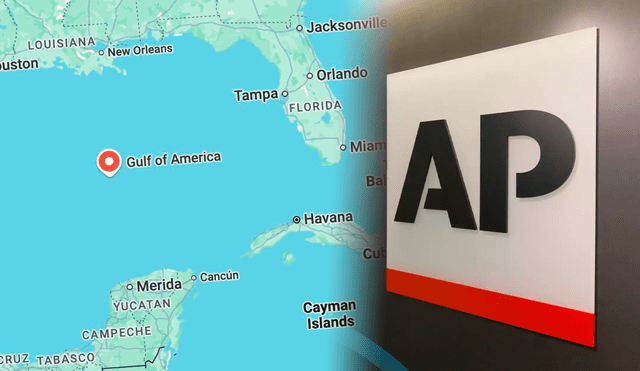AP claims it was banned from Oval Office over ‘Gulf of Mexico’ naming dispute
The AP was blocked from the Oval Office after rejecting the Trump administration's “Gulf of America” name change. The White House's actions raise concerns about press freedom and editorial independence.

The Associated Press (AP) has reported that it was excluded from a White House event after refusing to use the term “Gulf of America” as directed by President Donald Trump’s executive order. This order, signed in January 2025, mandates that the Gulf of Mexico be renamed to the Gulf of America. The AP's decision to continue using the traditional name has led to a clash with the White House, resulting in the reporter being blocked from attending an Oval Office signing ceremony for the executive order.
The White House's response came after the AP upheld its editorial standards, which adhere to the widely accepted name “Gulf of Mexico”, a term with centuries of historical use and international recognition. Despite this, the White House press secretary, Karoline Leavitt, informed the AP that access to future events would be restricted unless the organization complied with the president's directive. In the face of this ultimatum, the AP chose not to change its reporting style, leading to its exclusion from the event.
ALSO SEE: These are America’s Least Friendly Cities in 2025, according to a new study. Here's the full list
Background of naming dispute of 'Gulf of America'
The naming dispute stems from President Trump’s executive order to officially change the name of the Gulf of Mexico to the Gulf of America, a move that the AP deemed unwarranted. The AP argued that the new name lacks historical precedent and has not gained global recognition. For over 400 years, the Gulf of Mexico has been referred to by its current name, a tradition that the AP decided to honor. In contrast, the Trump administration’s push for the change reflects its ongoing efforts to assert a more nationalistic approach to geographical terminology.
Despite the AP's editorial stance, the White House's insistence on changing the name shows the tension between governmental directives and the independence of the press. Julie Pace, the AP’s executive editor, condemned the White House’s actions, stating that restricting press access over editorial decisions sets a dangerous precedent for freedom of the press in the U.S.
White House correspondents’ Association weighs in
The White House Correspondents’ Association (WHCA) quickly condemned the White House's move, expressing concern over the administration’s decision to limit press access based on editorial choices. The WHCA emphasized that the media must retain the right to report the news independently, free from interference or punishment for following long-established journalistic standards.
This clash between the AP and the Trump administration underscores the growing tensions between the media and the government, particularly around press access and editorial independence. The AP's refusal to comply with the name change has become a significant flashpoint in the ongoing struggle between government control and journalistic freedom in the United States.











